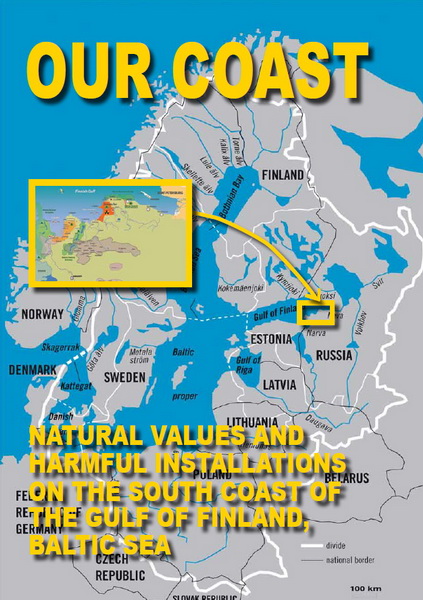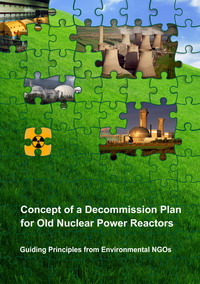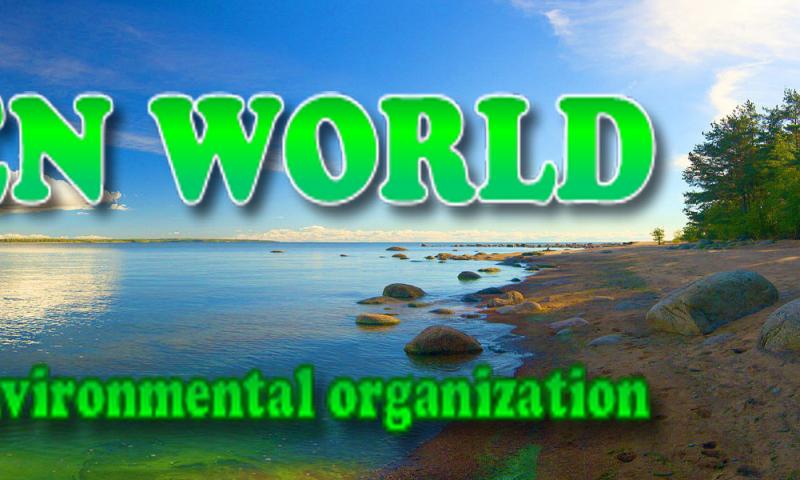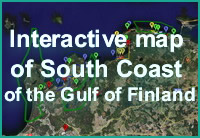
 |
The South Coast of the Gulf of Finland |
|---|---|
| Natural Values and Harmful Installations |
 |
Concept of a decommission plan for old nuclear power reactors |
|---|---|
| Guiding Principles from Environmental NGOs |
Resolution of the Round Table Discussion
The model of cooperation between authorities, nuclear industry and public discussed in St. Petersburg in the frame of International Round Table Discussion, March 12.
There are participated the representatives of the authorities, nuclear industry, scientists and public from Russia, USA. After the discussion, the participants adopted the resolution with the recommendations to all stakeholders of the decision making process of the nuclear facilities.
THE ROLE OF REGIONS AND MUNICIPALITIES IN DECISIONS ON ATOMIC OBJECTS
March 12, 2014, St. Petersburg, Russia
Regional Press Institute, Ligovskii Prospect. 73, Office 314
The purpose of the Round Table Discussion was to find an optimal balance between strategic government interests and the interests of local people and communities’ bymeans of proposing mechanisms for the inclusion of public opinion when deciding on the placement of nuclear and radiation hazardous sites.
Round Table Discussion participants included representatives of the state authorities of the Leningrad region, local authorities of Sosnovy Bor, experts from Russia, United States and representatives of non-governmental organizations from St. Petersburg, Leningrad, Murmansk and Chelyabinsk regions.
TAKING INTO ACCOUNT:
- The right of citizens to participate in decision-making in the siting of nuclear and radiation hazardous facilities in the relevant territory;
- The right to equal environmental safety in the regions of nuclear energy production and in the regions of disposal of radioactive waste;
- The responsibility to future generations when siting nuclear and radiation hazardous facilities;
- The lack of full implementation of the principle of citizen participation, voluntary associations in public policy debate, federal laws and other legal acts of the Russian Federation, as well as in practical activities in the field of nuclear energy;
- The absence of transparency in the discussion anddecision-making of the deployment of nuclear and radiation hazardous objects, the weak interaction of all stakeholders, that is, government, the nuclear industry and the public;
- The self-disengagement of authorities (local and regional) in participating in the decision-making to deploy nuclear and radiation hazardous facilities;
- The impossibility of a reliable forecast of the planned nuclear safety and radiation hazardous facilities in the long term, as long as they pose a threat to all living things;
- A positive international experience that takes into account the interests of the national, regional and municipal authorities, nuclear industry, and local communities when sitting nuclear and radiation hazardous facilities in the relevant territory.
Considers it necessary to propose that:
The State Duma:
- Develop legislation on clear and legally relevant mechanisms of citizen participation, public associations in the public policy debate, federal laws and other legislation of the Russian Federation, as well as in practical activities in the field of nuclear energy, including addressing issues connected with the placement of nuclear and radiation hazardous facilities;
- Create legal conditions for economic diversification and reduce dependence social infrastructure nuclear cities, including the closed administrative- territorial cities (ZATO) in order to ensure their balanced development while strengthening the physical protection of nuclear installations on their territory;
- Ratify the Espoo “Convention On Environmental Impact Assessment in a Transboundary Context” in order to provide a higher level of social and environmental safety in the siting, construction and operation of nuclear and radiation hazardous objects.
The Russian Government:
Sign the Aarhus Convention "On Access to Information, Public Participation Decision-making and Access to Justice in Environmental Matters" in order to provide a higher level of social and environmental safety in the sitting, construction, operation and decommissioning of nuclear and radiation hazardous objects.
The Public authorities in Leningrad Oblast
- Initiate the creation of a regional legislation regulating relations on account of the interests of the population of St. Petersburg, Leningrad Oblast, and SosnovyBoras nuclear and radiation hazardous facilities are placed there;
- Develop inter-regional public councils for monitoring processes of placement, design, construction, operation and decommissioning of nuclear facilities involving the authorities, the nuclear industry, science and the public with financial security with their respective budgets.
The Rosatom State Corporation:
More generally involve scientific, technical and environmental organizations in the preparation, conducting public environmental assessment and hearings, and prevent the manipulation of public opinion for the location, design, construction and decommissioning of nuclear facilities.
Public associations and other nonprofit organizations:
- Combinethe efforts of non-governmental organizations for the implementation of the rights of citizens in decision-making for the siting of nuclear and radiation hazardous facilities in the relevant territory;
- Motivate legislators in their regions to develop and adopt legal rules that protect the rights of citizens and integrate the environmental, social and other interests of present and future generations when siting nuclear and radiation hazardous objects.
This resolution was agreed upon and signed by all the participants of the Round Table Discussion:
Officials:
1. Nikolai Kuzmin, Deputy Chairperson of the Leningrad Region Legislative Assembly, Chairman of the Leningrad Region Legislative Assembly Standing Commission on Ecology and Nature, Sosnovy Bor, Leningrad Oblast, Russia.
2. Mikhail Vivsyany, Deputy Chairperson of the Leningrad Region Legislative Assembly Standing Commission on Ecology and Nature, Sosnovy Bor, Leningrad Oblast, Russia.
Representatives of municipal authorities:
3. Tamara Mavrina, Deputy Representative Assembly Sosnovy Bor, Leningrad region.
Expert community:
4. Oleg Muratov, Ph.D., expert of the Analytical Center of the Russian Federation, the Executive Secretary of the North West Department of Nuclear Society of Russia, St. Petersburg.
5. Peter Bradford, former member of the Nuclear Regulatory Commission (NRC), USA, Vermont Law School, Vermont, USA;
6. Nathaniel Trumbull, PhD, Geography, University of Connecticut, USA;
NGOs representatives:
7. Oleg Bodrov, Coordinator of the NGO Decommissioning Network, Sosnovy Bor, Leningrad Region/
8. Andrey Talevlin, PhD, Movement "For Nature," Chelyabinsk, Ural Region, Russia.
9. Vitaly Servetnik, Kola Environmental Center, Murmansk Region, Russia.
10. Yulia Korshunova, Green World, Interregional public environmental movement, Murmansk, Russia.
Resolution has sent to all panelists, observers participated in the Round Table Discussion, as well as all the parties mentioned in the resolution, and mass-media.
Oleg Bodrov, Coordinator of the Round Table Discussion
e-mail: Bodrov@greenworld.org.ru
Organizing Committee,
mob. +7 921 74 52 631
www.greenworld.org.ru
Sosnovy Bor, March 31, 2014


